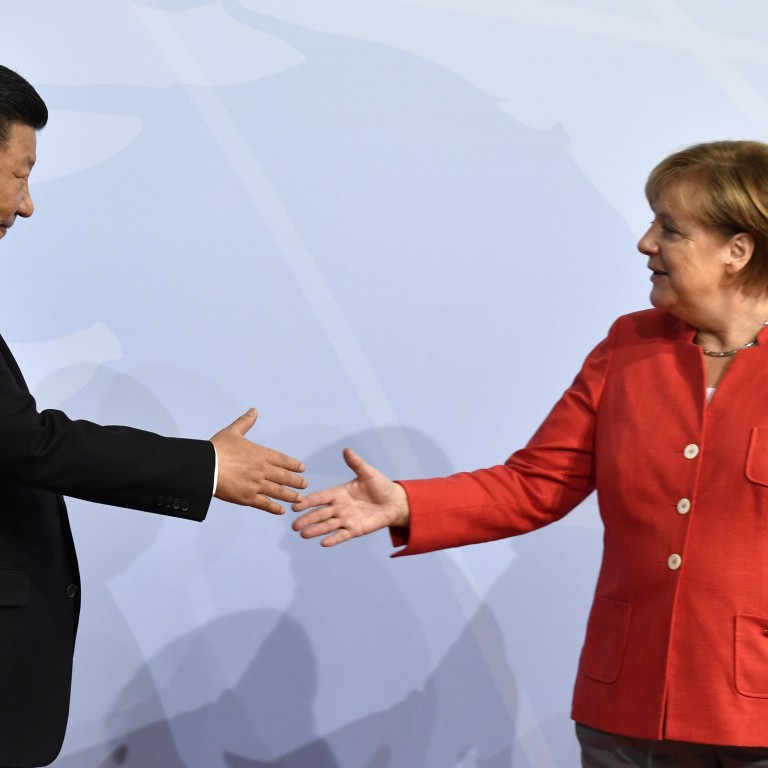
All EU member states back China investment deal, sources say
- Agreement ‘could be reached’ this week following movement on major sticking point
- No country had raised ‘stop sign’ clearing way for political endorsement, diplomat says
Under the deal, European businesses would enjoy a more privileged investment environment in China than their American counterparts, according to trade specialists.
What is the China-EU CAI and how is an investment deal different from a trade deal?
An EU diplomat with knowledge of the discussions said that on Monday representatives of the EU member states were briefed by EU negotiators who had “reported on recent positive developments in the negotiations with China including on labour standards”.
The representatives “broadly welcomed the latest progress in the EU-China talks”, the diplomat said.
It remains unclear what commitments Beijing has made on the sticking point of forced labour, an issue raised by several EU member states in relation to state policies against Uygurs and other minority ethnic groups in China’s far western region of Xinjiang.
The source added: “The council presidency [Germany] concluded at the end of the meeting that no delegation had raised a stop sign and that the way for a political endorsement was thus cleared.”
China and EU ‘should meet halfway’ in landmark investment deal talks
A spokeswoman from the European Commission, which conducted the negotiations with China on behalf of the EU, said: “We cannot confirm anything at this stage.”
A second diplomatic source said the deal – which has been seven years in the making and gained momentum only over the last fortnight – could be concluded within 48 hours.
If reached, the deal would come hard on the heels of China’s success in creating the Regional Comprehensive Economic Partnership with 14 other Asia-Pacific nations, and the EU’s post-Brexit agreement with Britain.
But it would still need to be approved by the European Parliament, where some members are very hawkish on China and likely to galvanise opposition to the agreement.
According to people briefed on the deal, China would have to make more concessions to the EU, given that European markets are already open to most direct foreign investment. In particular, European businesses are expected to gain unprecedented access in telecommunications, finance, and electric and hybrid cars.
China-EU investment deal: eleventh-hour pressure comes from US and within Europe
Observers said the biggest gain for China would be geopolitical.
“After four years of Donald Trump, the EU is sending a very clear message that it will go its own way on China,” said Noah Barkin, an EU-China specialist with Rhodium Group, a research firm.
“This doesn’t doom transatlantic cooperation with Biden, but it shows just how difficult it will be. The big winner if this deal does come together is Beijing.”
Erik Brattberg, director of the Europe programme at the Washington-based Carnegie Endowment for International Peace, said the EU’s “last-minute push” to complete the deal with China “has already raised eyebrows in Washington”, adding: “It risks undermining the credibility of the EU’s call for a joint transatlantic China strategy with the US even before the new Biden administration settles in.”
China insists investment deal talks with EU going smoothly
Franck Riester, the minister delegate in charge of trade in the French foreign ministry, said last week that if the EU failed to commit to abolishing forced labour “we cannot facilitate investment in China”.
Polish Foreign Minister Zbigniew Rau also warned that Europe would need more consultations and transparency to win over its transatlantic allies.
By moving forward with the deal, Brussels also turned a blind eye to a thinly veiled warning from Jake Sullivan, Biden’s designated national security adviser, who said the Biden administration “would welcome early consultations with our European partners” on the concerns about China’s economic practices.

